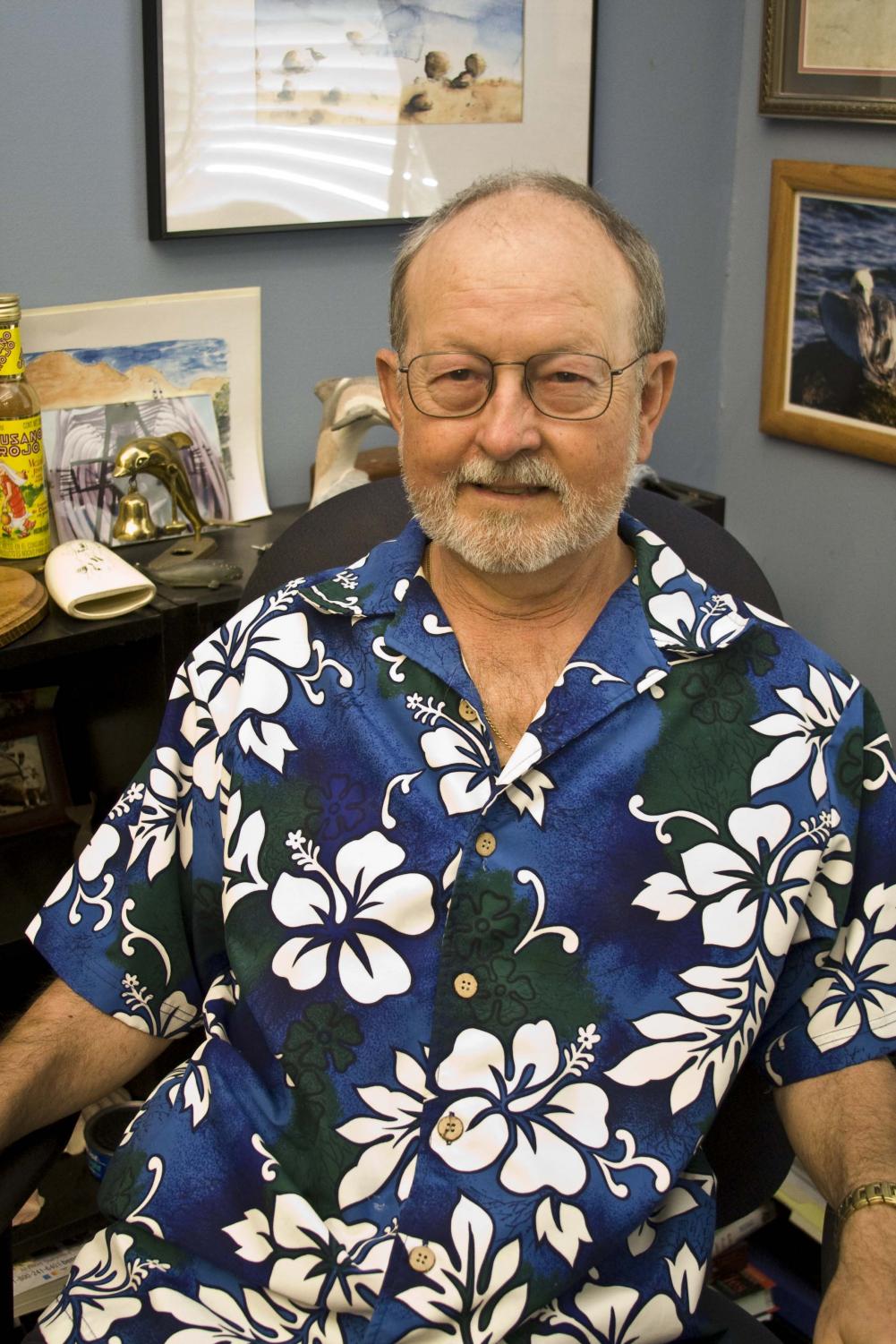At the fast approaching end of the semester, Biola will not only be losing another class of graduates, but also a beloved professor. Dr. Rafe Payne, who has taught in the science department for 38 years, is retiring at the end of the year. Much loved for his classes, but even more for his excitement for Biola and life in general, Payne’s presence has made Biola a better place.
He had humble beginnings here at Biola — so humble that he shared his first office with a bunch of guinea pigs. The man knew the campus before it looked anything like it does today— even before Calvary Chapel existed. Over the years, he grew with the campus and its students, falling in love with it more and more.
Those who were blessed enough to have a class with him know his passion for life, learning and Biola. But he is equally as thankful for those students as they are for him.
“For me, the biggest blessing of all has been the students, no doubt about it. That’s what has kept me here,” he said.
Payne received a bachelor’s degree at Westmont College, and did masters work at UC Santa Barbara. He began teaching at Biola when it had just three full-time science professors. Jan, his wife of 43 years, works with the Biola Theatre. They have one son, Luke, a recent Biola graduate.
Both he and his wife will be fully retired next summer, and they will live at their home in Baja. They have a two-story house that sits 70 yards from the Sea of Cortez, in the Los Angeles bay.
“We will spend maybe three months at a time down there, and then come back to spend time with my son,” said Payne.
Jan will teach one more year with Biola Youth Theatre, and Payne will teach one more BOLD class and Baja course before officially retiring. But, Payne certainly isn’t calling it quits. “I’m not going to unretire fully, but I’m not just going to go away. I don’t think I could do that,” he said.
Payne heads to retirement, due partly to failing health.
“Two years ago I was diagnosed with Polymyositis, an autoimmune disease where my body doesn’t recognize my muscles. It’s gradually eating them up.”
Payne’s physical abilities will slowly deteriorate, and within four or five years, he will probably be limited to a wheelchair. “We have slowed it down significantly,” he said, thankful for good doctors and medicine that slows the process considerably.
The active, and optimistic Payne, will not let things get him down.
“God has taught me a lot of really good lessons through this. I had plans for retirement, I was going to do some traveling, but that is just out of the question now,” he said.
“I asked the Lord, ‘What am I supposed to learn from this?’ not, ‘Why me Lord?’ I have learned patience with myself and those around me, and have learned to admit my weaknesses.”
Payne says he is looking for new avenues of service he would never have been open to if he had retired in good health.
The light-hearted Payne knows that when he is grounded to a wheelchair he will need to get heavy-duty wheels to take trips to the beach. He also plans to buy some ATV’s to ride around his Baja home.
“I’m discouraged sometimes, but generally not. I don’t lay awake at night. The Lord has got me in his hands, he knows what he is doing,” said Payne.
Payne has seen a lot of change in his time Biola, but he admires greatly its biblical scholarship and leadership.
“What hasn’t changed is Biola’s commitment to the Word. It just hasn’t changed at all,” he said. Payne expressed gratefulness for his time as a professor here.
“Biola has been a really freeing place. Some people would think that our biblical commitment, and our understanding of God as the Creator, would limit me as a biologist, but it’s not that way.”
“We still, as large as we are, can function as a family, there is enough familiarity, cordiality and Christian love for sure, that we look at the warts on our noses, and the bumps and bruises, and we help each other up, and we are to each other what family should be,” said Payne. “I love the place, I really do. It’s hard to imagine God putting me anywhere else.”
Payne will truly be missed as a part of the science department and the campus as a whole. He leaves Biola assured that it is in good hands and is already proud of the places it’s sure to go.
“I would be excited to be a student right now, I really would be. I think it can be really exciting, all this transition,” he said.
Payne and his wife Jan will soon enjoy the sunrise on the Sea of Cortez, finding peace not only in the serene surroundings, but also in the knowledge that Biola is a better place because they devoted their lives to serving it. The university – its students, faculty and administration – will forever love and miss them.







